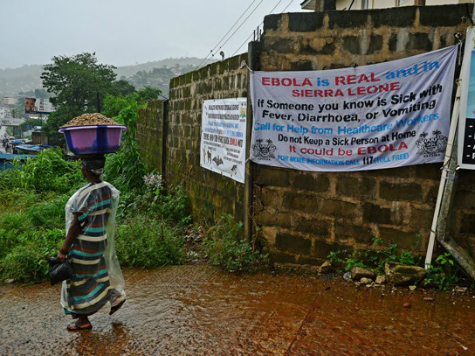The government of Sierra Leone has canceled public Christmas and New Year celebrations due to the Ebola outbreak. The government stationed soldiers on streets to make sure people obey the ruling.
“We should stop all traditional practices for now so that we will live to continue to practice them later,” said President Ernest Bai Koroma.
Sierra Leone reported over 1,300 new cases in the past three weeks. The number put the country above Liberia with the “highest number of [cases of] the deadly virus.” The virus’ spread is growing in the northwestern regions.
“We will ensure that everybody remains at home to reflect on Ebola,” said Palo Conteh, head of Sierra Leone’s Ebola response team.
Ebola infected over 8,000 people and killed almost 19,000 since the outbreak started in March in Guinea, spreading to Liberia and Sierra Leone. Ebola is passed through contact with bodily fluids of an infected person. Sierra Leone’s government has already taken steps to slow the virus, accelerating the process in September. In October, the government quarantined Waterloo, “which is the gateway to Freetown, the capital.” The city is only 19 miles to the east of Freetown.
The new deaths have been exacerbating major problems for the Ebola Burial Team. Manso Kargbo, the head of the team, said his team buried “over 700 bodies” since mid-September to October 27. The majority of these bodies, he notes, are from Waterloo. His team collects bodies from homes and hospitals, but every day they discover bodies in the streets. Many Africans do not report dead relatives in order to provide traditional burials medical experts have ruled out in light of the Ebola outbreak. Kargbo insists his team conducts “dignified burial ceremonies and sometimes with participation of family members who pray from a distance.” But this is little comfort to some who decide to bury family members in family plots without proper medical guidance.

COMMENTS
Please let us know if you're having issues with commenting.